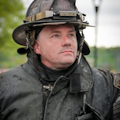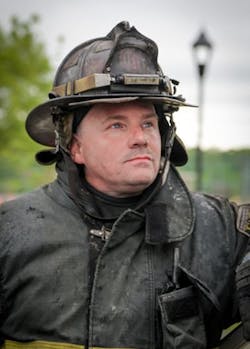You’re in one of the few jobs that deals with tragedy in the place where it occurs. You observe humans who are hurt and then you treat them on the way to the next level of care. You witness bad scenes and death on a regular basis. All of this is considered “normal.” However, it doesn’t have to carry over into the firehouse and affect your day-to-day life.
Choices
Dealing with the negatives can weigh heavily on today’s firefighters, which can make life inside of the walls of the fire station miserable. That said, the stress of bad calls isn’t the only thing that has a slow creep inside of the firehouse. Negativity, in general, tends to find a seat at the kitchen table. However, every firefighter needs to make a conscious choice of whether he/she will allow it to remain there.
Why does negativity creep in? It’s because negativity is easy, and positivity is difficult. Ask firefighters from around the globe to share their opinion on improving their department. We all can share the “problems” immediately. The same should be true for the good things about your department.
Steering away from the “could be’s” and the “should have’s” is challenging. Some say that humans are genetically predisposed to find the negative. This might date back to the cave men, who wouldn’t step out of their caves, because the fear of being eaten was real.
How can we rewire ourselves to find the positives? Former Navy SEAL John “Jocko” Willink is known for a saying: “When things are going bad, there’s going to be some good that’s going to come from it.” It’s your choice to react to the negative and to turn it into a positive.
Being aggressive with your positivity is a choice, too. It starts with a conscious decision to make this day a positive one, to find the good while steering clear of the negativity. Turning conversations requires tools, tips and tricks. Developing this ability starts with canned responses. When someone starts a negative conversation, you need a tool to change it. Just like calling a mayday on the fireground, you can develop these responses. For example, someone says, “We are losing a station.” Response: “Good. That means that we have to be out of the station faster and be more efficient on the fireground.” Or “Can you believe that the chief is doing that?” Response: “Yes, I did hear that, and I’m sure it’s part of the process of working through the issue.”
When your responses don’t redirect the conversation, use the stand-up-and-leave tactic: “Excuse me, I have a truck to check” or “See you later. I have SCBA to service.” If for some reason the conversation follows you to the floor of the station, just grab the saw and let it rip. Others will figure out real fast that you aren’t in the mood to talk. When that doesn’t work, I find that 1990s hip-hop will either get them singing along or running with their ears covered.
Here is the thing: You need to stop allowing others to dictate your happiness. Don’t get pulled down into the pit of despair. Make a choice to stay in your lane and to take care of the things that you can change—your preparedness, your readiness, your happiness and your positivity. Get as aggressive in the firehouse as you would on the fireground—aggressive with the positivity.
Let’s all take the Aggressively Positive challenge. It’s taken on a personal level. (Don’t share with anyone that you’re taking it. It must be kept a secret.) Challenge yourself to 10 shifts, a month of drills or three weeks of dayshift where you won’t say a negative comment about anything—not about your spouse, not about the dog poop that you stepped in and particularly not about your organization. You’re going to see how difficult that it is, and you also will see your organization change. Of course, it won’t change overnight, but, as the challenge progresses, you will see subtle changes that will make a huge difference in your organization. Hours will turn into days. Days turn into months. Months turn into years. Make the choice, take the challenge and get aggressively positive in your firehouse.
About the Author

Ryan Pennington
RYAN PENNINGTON is a 22-year veteran of fire/EMS. He currently serves as a captain/paramedic with the Charleston, WV, Fire Department, where he has served for the past 12 years. Pennington has lectured and trained thousands of firefighters across the United States and internationally at conferences, including Firehouse Expo and Firehouse World, and has been published in many fire service publications.
